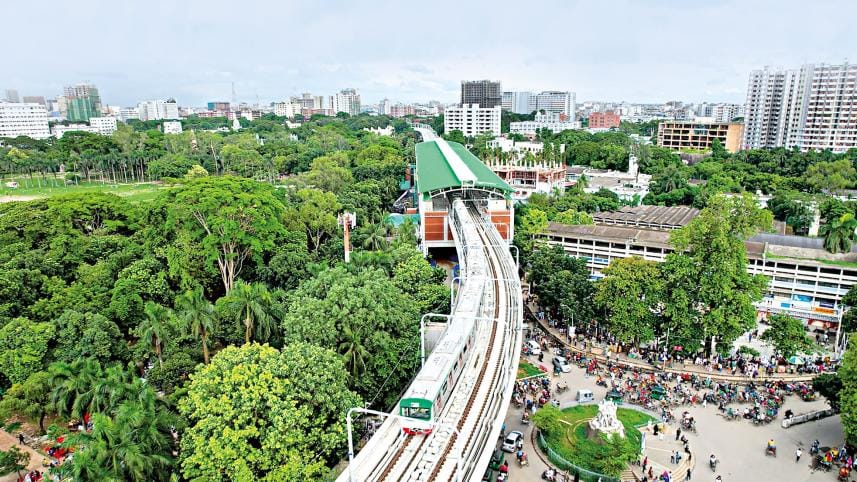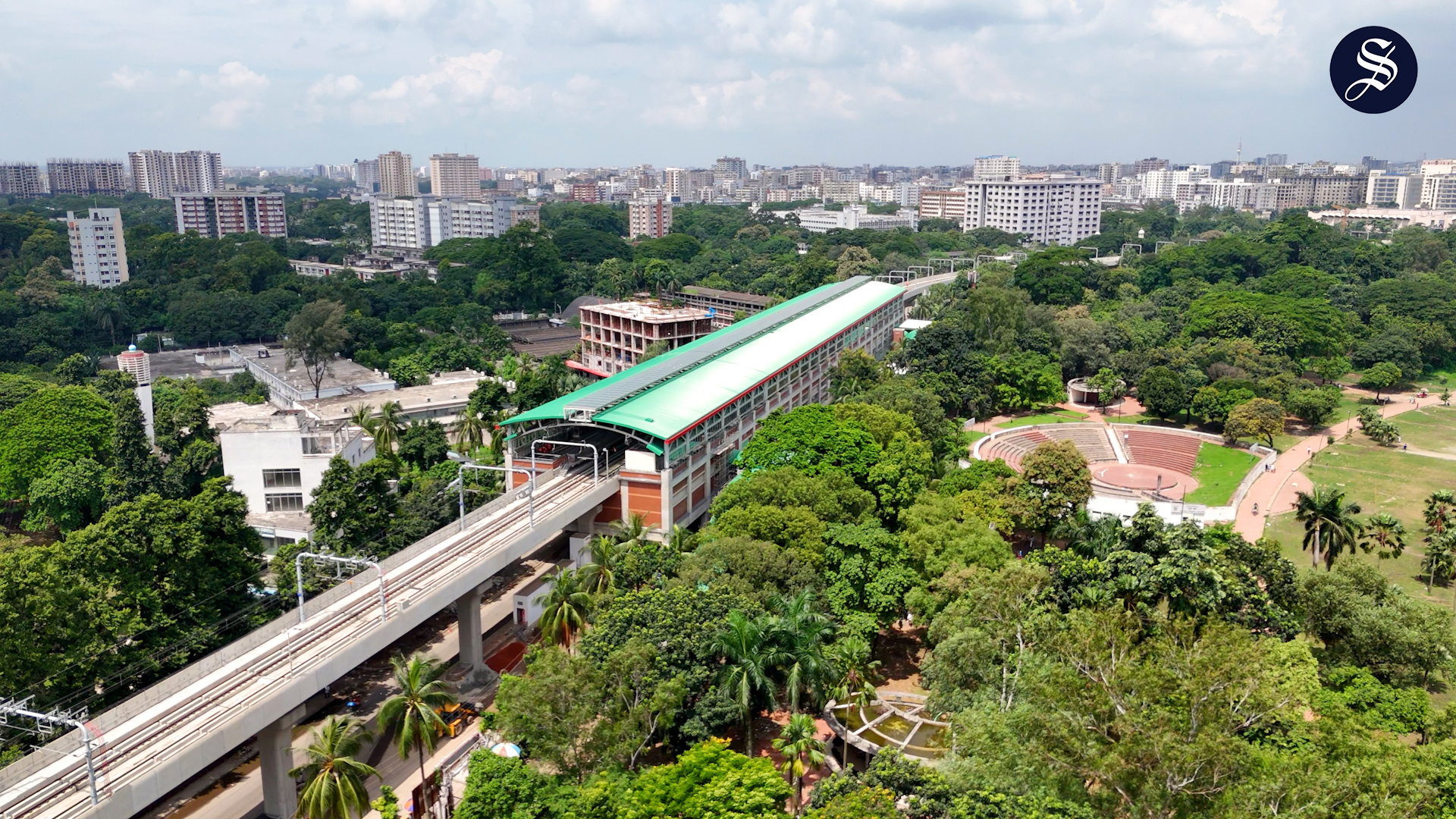Uttara to motijheel in just 31 minutes!

It takes at least two or three hours for anyone who wants to travel from Uttara to Motijheel by bus, the most common mode of public transport in Dhaka city. It's not merely a matter of time; individuals, especially women, encounter a range of challenges, beginning with the quest for a seat on the 24km journey.
But now, things are going to change for the better. Believe it or not, the journey from Uttara to Motijheel will be just half an hour. The metro rail, one of the quickest and most punctual transport modes, will take a passenger from Uttara to Motijheel in just 31 minutes as authorities are opening the Agargaon-Motijheel section of the country's first metro rail line to the public tomorrow.
Prime Minister Sheikh Hasina is set to inaugurate the Agargaon-Motijheel section of the metro rail, formally known as the Mass Rapid Transit Line-6 or MRT Line-6, today.
"Traffic jams are a common phenomenon in the capital. But it seems the congestion has intensified in the last few months, especially in the Bijoysarani and Farmgate areas. So, the opening of the metro rail up to Motijheel is the biggest news for me," says Raihan Islam, a private service holder who has to travel from Uttara to Dainik Bangla six days a week.
Currently, a metro rail takes 17 minutes to travel from Uttara to Agargaon, according to metro rail authorities. It will take an additional 14 minutes from Agargaon to Motijheel, with three stations operational at the beginning, meaning the journey from Uttara to Motijheel will take 31 minutes at the start.
It will take a total of 38 minutes once all the 16 stations from Uttara to Motijheel become functional, the authorities said.
Since the opening of the Uttara to Agargaon part of the metro rail in December last year, the demand for trains on the Agargaon-Motijheel route has increased as the major catchment area runs through Mirpur to Motijheel.
"Now, the metro rail will serve some major points of Dhaka city. So, the number of passengers will increase significantly," says transport expert Kazi Md Shifun Newaz, adding.
The metro rail will now connect Farmgate, one of the busiest intersections in the capital, Karwanbazar, where the city's largest kitchen market is situated, Dhaka University, the secretariat, the key point of the country's administration, and Motijheel, the capital's commercial hub.
He said the operation of the metro rail line from Uttara to Agargaon was like a trial run. A greater number of people will now benefit from the metro rail service. "More importantly, the operation of the metro rail up to Motijheel will save a person three to four hours daily from now," he said.
Shifun Newaz, also an assistant professor at the Accident Research Institute of BUET, said the extension of metro service up to Motijheel would help reduce the number of vehicles on the streets, which would help the authorities bring discipline to the streets.
Besides, it will help reduce pollution to some extent, he said.
According to metro rail authorities, around 90,000 passengers use the metro rail daily, and once the Uttara to Motijheel route becomes fully functional, expectedly within three months, around 5 lakh passengers will avail its service.
It is said that once the line becomes fully functional, it will save around Tk 3,500 crore annually in terms of travel time and vehicle operation costs.
The authorities said it would save Tk 8.38 crore in travel time cost and Tk 1.18 crore in vehicle operational cost daily, meaning Tk 3,489.40 crore would be saved annually.
The electricity-run trains on the route will significantly reduce the number of other vehicles and thus cut 2.02 lakh tonnes of carbon emissions annually, they said.
MRT Line-6 is one of the six metro rail lines the government has planned to build by 2030 to create a 140-km metro rail network in Dhaka and its adjacent areas to reduce traffic congestion and pollution. Once the network is fully functional, 50 lakh passengers will be able to avail of the service.
Construction work of MRT Line-1, the first underground metro rail line in the country, and MRT Line-5 (northern route) have already started. The rest of the three proposed lines—MRT Line-5 (southern route), 2, and 4 are now in the preparatory stage.
Approved in 2012, the fast-track project was aimed at building a 20.10km elevated metro rail between Uttara to Motijheel by June 2024 at a cost of Tk 21,985 crore.
But the authorities later changed the decision to extend the line up to Kamalapur Railway Station, making the total length of the line 21.26km. The extended part saw 17.30 percent progress till October this year, according to the monthly progress report of metro rail authorities.
The revised cost of the project is Tk 33,472 crore, and the deadline is December 2025. The major part of the project cost will come from Japan as a soft loan.




 For all latest news, follow The Daily Star's Google News channel.
For all latest news, follow The Daily Star's Google News channel. 
Comments